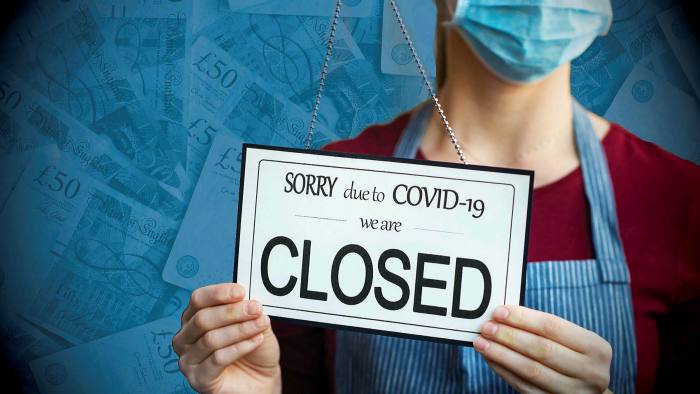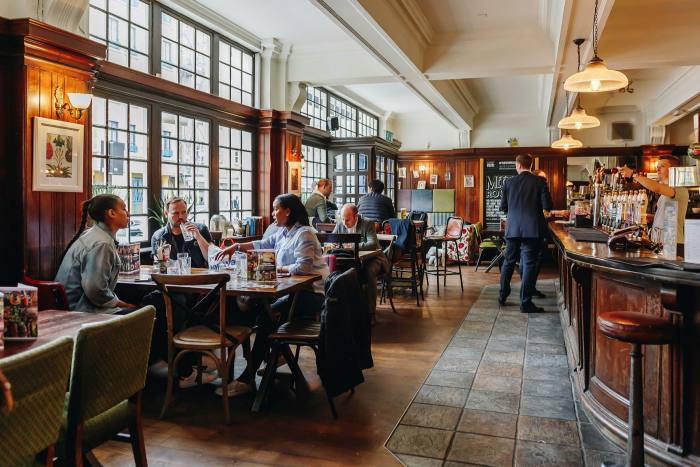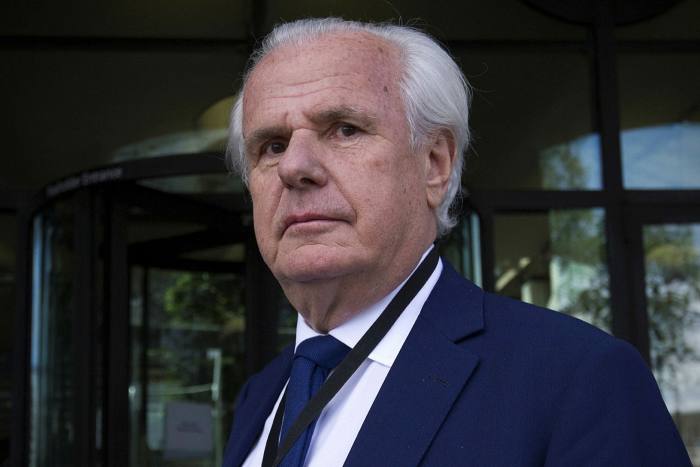
UK bailout schemes could create coronavirus debt trap, warn banks
Fear businesses could face paying billions in loans just as they try to recover from pandemic
by Daniel ThomasTim Foster, founder of London-based Yummy Pub Co, wants government help to keep his business afloat through the coronavirus lockdown.
But he has chosen to avoid the hugely popular state-backed loan schemes, most of which offer interest-free debt for a year before banks start charging, knowing these may only prove a short-term fix.
“If I am to borrow cash at zero interest rates for a year, then anything from 6 per cent upwards I’m saddling myself with years of debt,” he said. “I can’t understand why the government is telling me to just borrow myself out of danger.”
Like Mr Foster, business leaders and policymakers are questioning whether the rescue packages that the government has put in place to save British businesses might eventually prove their undoing by creating an unsustainable mountain of debt.
Much of the government bailout package for businesses has been in the form of state-guaranteed credit. Four different schemes are now in place, from the so-called “bounce back” loans aimed at the smallest businesses to commercial paper being acquired by the Bank of England for the largest companies with an investment grade.

About £40bn has been lent to about half a million businesses through the schemes in just two months — over a third more than the annual net debt increase across all listed UK companies last year, according to Link, the shareholder adviser.
“Until now it’s [been] all about how to get debt out — but we have to think about getting it back,” said one banker, who described the past two months as “firefighting” just to keep British businesses alive as revenues crashed in the pandemic.
“Yet again, we have a crisis where the policy response, unavoidably, entails more debt in an already highly indebted economy,” said Paul Tucker, chair of the Systemic Risk Council, a think-tank, and former deputy governor of the Bank of England.
“Afterwards many businesses will need more equity, partly through voluntary conversion or bankruptcy procedures, which must be efficient given the potential volumes,” said Sir Paul.
Senior bankers have warned Whitehall that many businesses have been encouraged to take on debt that they will not be able to afford as they emerge from the coronavirus crisis with severely weakened balance sheets.

Part of the bailout package has been in the form of debt schemes with government guarantees that protect the banks from much of the losses. TheCityUK, the financial trade group, has estimated that this government-backed debt alone could climb to more than £100bn.
Companies across the UK have also agreed new lending lines, drawing credit facilities and delaying repayments of debt to help them survive. Banks are already gearing up for billions of pounds of bad loans as businesses struggle with their debts.
The cash crunches will come in waves when the VAT holiday ends, and when the one year interest-free period on the loans endAdam Marshall, British Chambers of Commerce
“This is by definition debt that companies will struggle to repay — they would not need it unless they were in difficulty,” said another person familiar with the thinking behind the four schemes. “But without it, companies would fail.”
Other government rescue measures are structured to delay, rather than remove, costs such as VAT. But payment holidays are set to come to an end around when companies will need to start repaying their debt in a year’s time.
Adam Marshall, head of the British Chambers of Commerce, described the loan schemes as “disaster delayed but not averted”, saying that after several revisions to iron out early flaws the “schemes are now working but it also means that the government is underwriting more risk”.
“The cash crunches will come in waves when the VAT holiday ends, and when the one year interest-free period on the loans ends,” said Mr Marshall. “A lot of companies will need new money, given the levels of debt sloshing around the corporate sector that can’t be paid.”
Economists worry these loans will be a drag on Britain’s productivity in the medium term, with executives less willing to invest in capital expenditure, skills training and growth because their businesses carry unsustainable debts.

Paul Myners, former City minister, predicted the emergence of “zombie” companies that worry more about paying down debt than growing as businesses.
The Treasury and the Bank of England are in active discussions about how to resolve the impending debt crisis, say officials and bankers.
Equity markets may provide part of the answer, according to Miles Celic, head of industry body TheCityUK, with investors able to buy distressed debt in exchange for equity stakes in businesses. But given the scale of the debt problem “there will need to be some sort of public sector solution”, he added.
Senior City figures are urging the Treasury to consider a state vehicle to take equity stakes in some businesses. The Treasury confirmed it was looking at the “debt burden” being accumulated by companies and that it was “aware” of the debate over the government setting up a public vehicle.
In the short term Rishi Sunak, chancellor, favours the use of loans to support struggling companies, with the taxpayer standing at the front of the queue of creditors. But the Treasury is looking at a range of medium-term options for helping companies through the debt problem.
TheCityUK is also working on these ideas, ranging from the creation of a “bad bank” that could hold problem debt, to the establishment of a public/private fund that could swap debt for equity stakes. This could see the creation of a state-backed investment vehicle that would do a similar job to 3i, the investment group that was originally set up by the government and British banks to invest in businesses after the second world war.
Banks having equity stakes in businesses was what got a lot of us into trouble last time round [in 2008]Senior banker
Another potential model, say bankers, is KfW, the German state-owned development bank that provides equity and loans to small businesses. Meanwhile, the Federation of Small Businesses has recommended a “student loan” approach that would allow companies to repay debts over an extended period.
Bank of England boss Andrew Bailey on Wednesday acknowledged that there needed to be a programme to inject equity into companies in exchange for debt. “I don’t know whether it has to be a formal scheme, but we do need tools to allow it to happen,” he said. “The question is, do we need more than the regular market tools because of the unique situation we’re in.”
Lord Myners, who helped draw up the government’s bailout measures after the financial crisis, backed the idea of a public sector vehicle that could work with private sector money to convert debt into equity stakes in businesses.
But he cautioned that the Treasury also needed to decide which companies deserved saving in order to protect taxpayer money. “Owning 20 per cent of a small brewery is very different from owning 20 per cent of RBS,” he said.
One senior banker said the idea of a debt-for-equity swap that “got the business off our books would be very attractive”.
But he warned: “Banks having equity stakes in businesses was what got a lot of us into trouble last time round [in 2008].”
Additional reporting by Stephen Morris